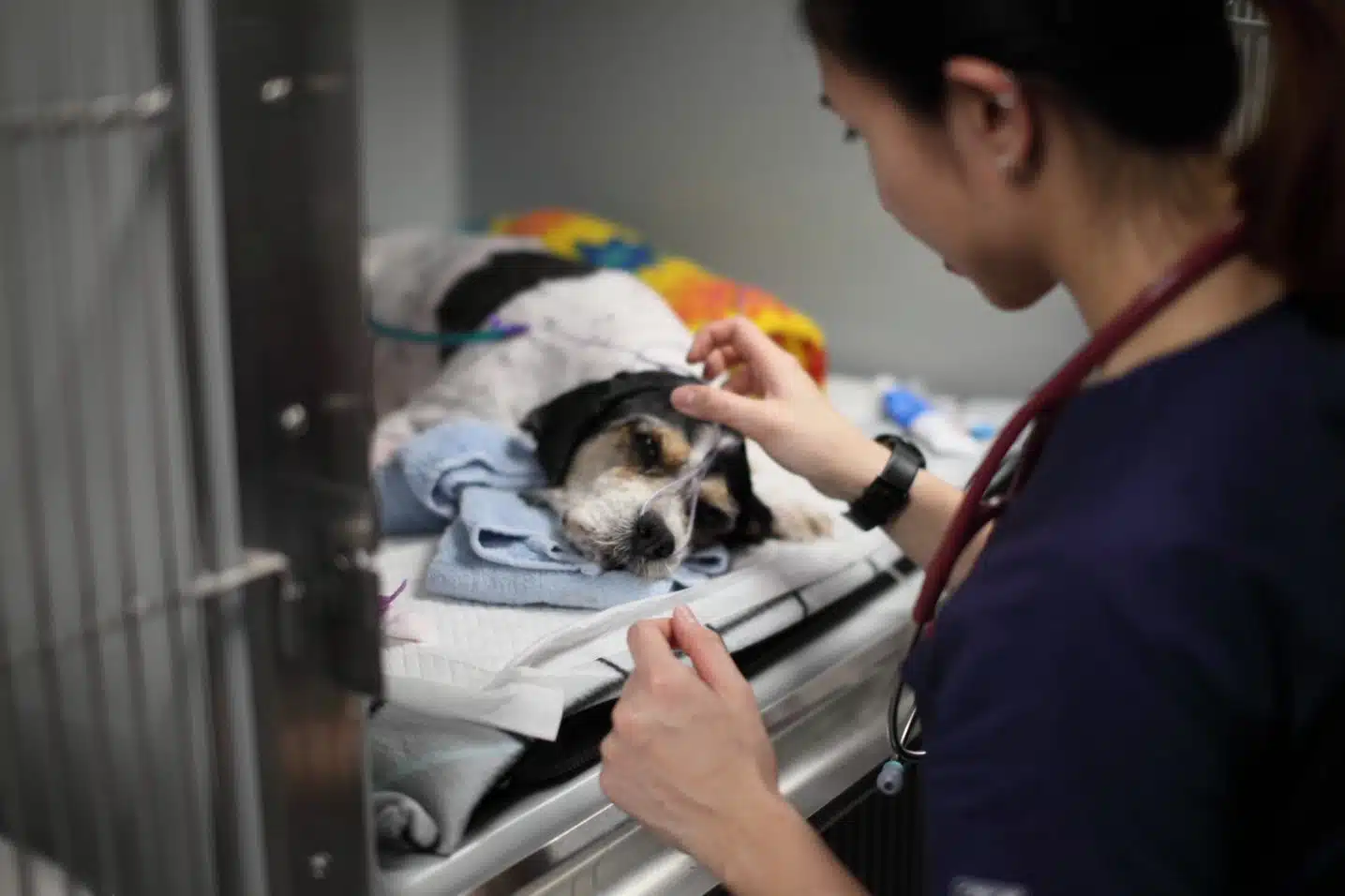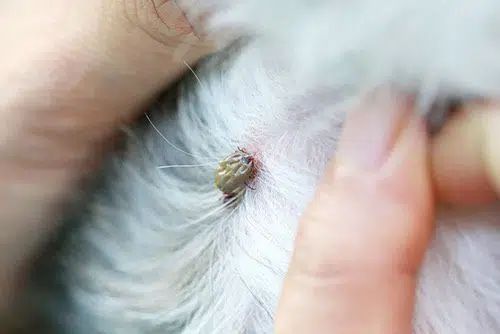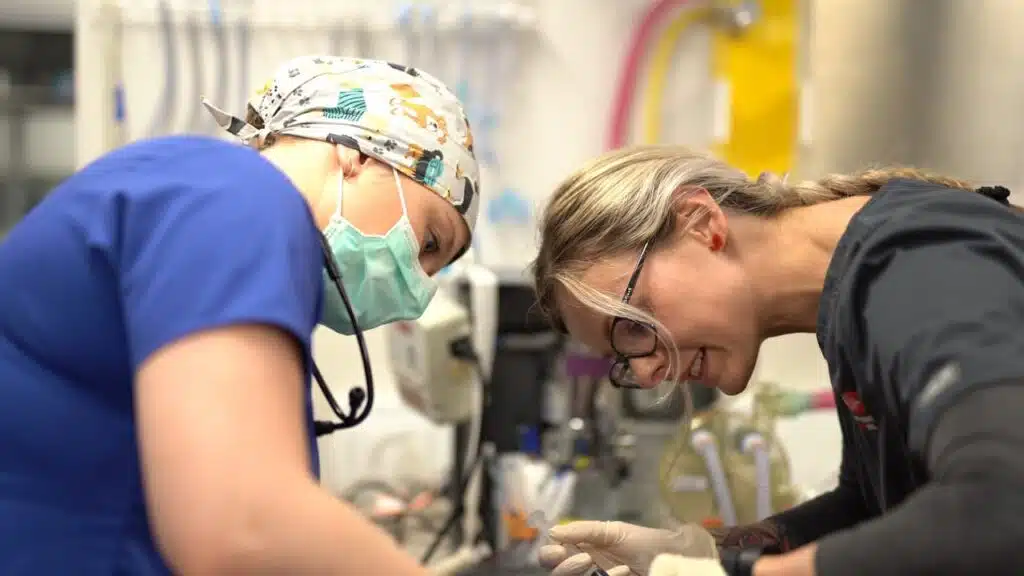The veterinary profession is a noble and rewarding career that involves caring for animals and improving their wellbeing. However, while our profession is fulfilling, it also comes with its own set of challenges that can impact the mental health of veterinary professionals. Long hours, emotional exhaustion, high workloads, and dealing with the loss of animal patients are just some factors. These can contribute to the high prevalence of vet mental health issues such as depression, anxiety, and burnout among professionals in the veterinary industry.
In fact, studies have shown that veterinary professionals have a higher rate of suicide compared to the general population. This is why it is essential for veterinary professionals to prioritise their mental health and wellbeing to ensure they can provide the best care for their patients and avoid potential career burnout. In this article, we’ll explore the various ways veterinary professionals can improve their vet mental health and maintain a healthier relationship with work.
Vet Mental Health Tip #1 – Take Breaks and Prioritise Self-Care
Taking breaks and prioritising self-care is essential for maintaining positive mental health and wellbeing in the veterinary profession. Veterinary professionals work in high-stress and emotionally demanding environments, often dealing with animals in pain or distress. These experiences can take a toll on one’s mental health, making it crucial to take breaks and engage in self-care practices. After all, we care so much for others, but how often do we care for ourselves?
Taking Breaks
One of the key self-care practices for veterinary professionals is taking regular breaks throughout the day. Breaks can help to reduce stress, increase productivity, and improve overall job satisfaction. We all know that fitting in a break can be challenging in a bustling veterinary clinic, but breaks can come in various forms. This could mean taking just a few minutes to stretch or go for a quick walk, getting away from your desk for a proper lunch break, or scheduling time off for vacations or days off. By taking regular breaks, you’ll be able to recharge your energy levels without draining yourself completely.
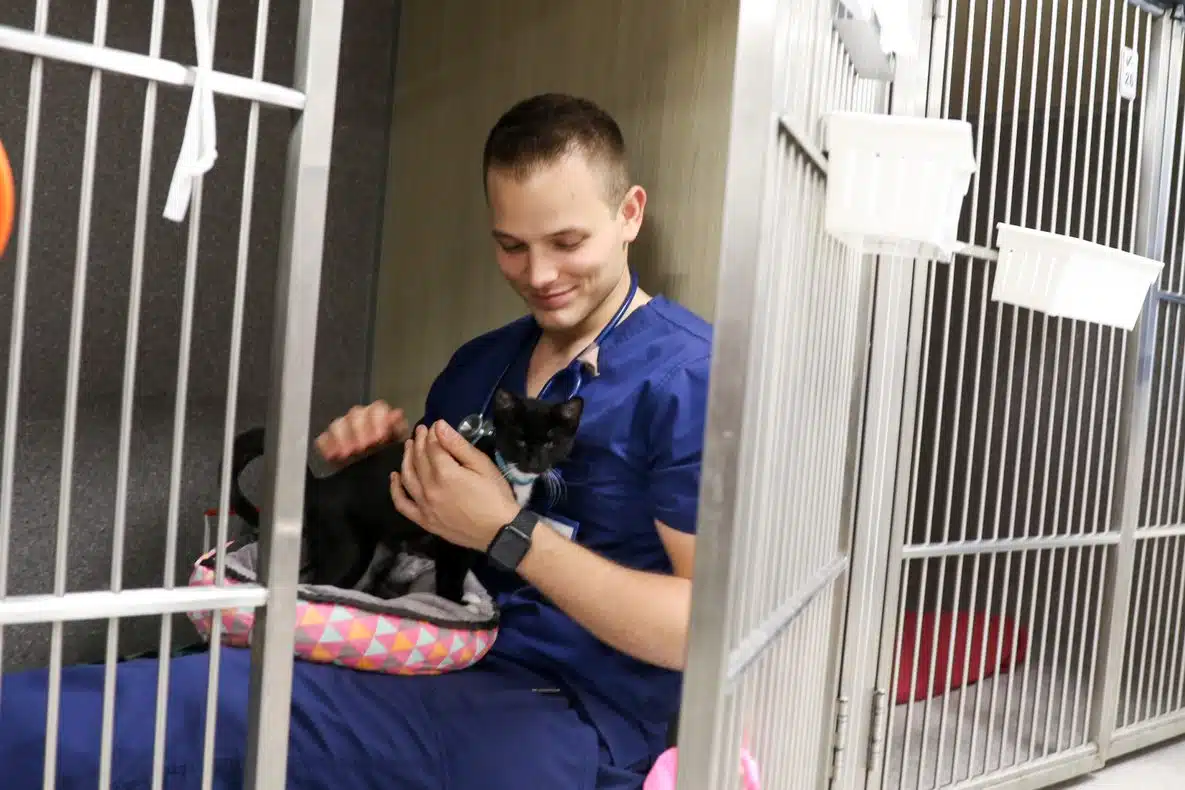
Self-Care Practices
In addition to taking breaks, prioritising self-care practices such as getting enough sleep, eating a healthy diet, and engaging in physical activity are also important. Exercise is a great way to relieve stress and improve mental wellbeing. The benefits to physical health are obvious, but exercise can also offer a significant boost to your overall mental state due to the release of endorphins.
Mindfulness
Moreover, mindfulness practices such as meditation, deep breathing, and yoga can also help to reduce stress, which we’ll discuss further in some practical tips later in this article. By taking the time to focus on oneself, veterinary professionals can improve their mental and physical health, which can lead to better patient care, improved job satisfaction, and a healthier work-life balance.
Vet Mental Health Tip #2 – Seek Support from Colleagues and Peers
Seeking support from fellow veterinary colleagues and peers is important for vet mental health, because studies have shown that fostering connections has been proven to reduce stress in veterinary professionals. Vet clinics can at times be stressful and emotionally demanding environments, and so having access to support from your team is vital. Seeking support from colleagues and peers can help you to feel more connected and supported, which can help to reduce the risk of mental health issues.
What are the benefits of seeking support?
One of the benefits of seeking support from colleagues and peers is that it can provide a sense of community and belonging, both inside and outside of the clinic. By connecting with others who share similar experiences, veterinary professionals can find comfort and validation, which can help to reduce stress and improve overall wellbeing. This can be especially important for those working in sole practice or small clinics, as they may not have the same level of social support available to them as those working in large vet hospitals. If you have a colleague or friend in this situation, reach out to them!
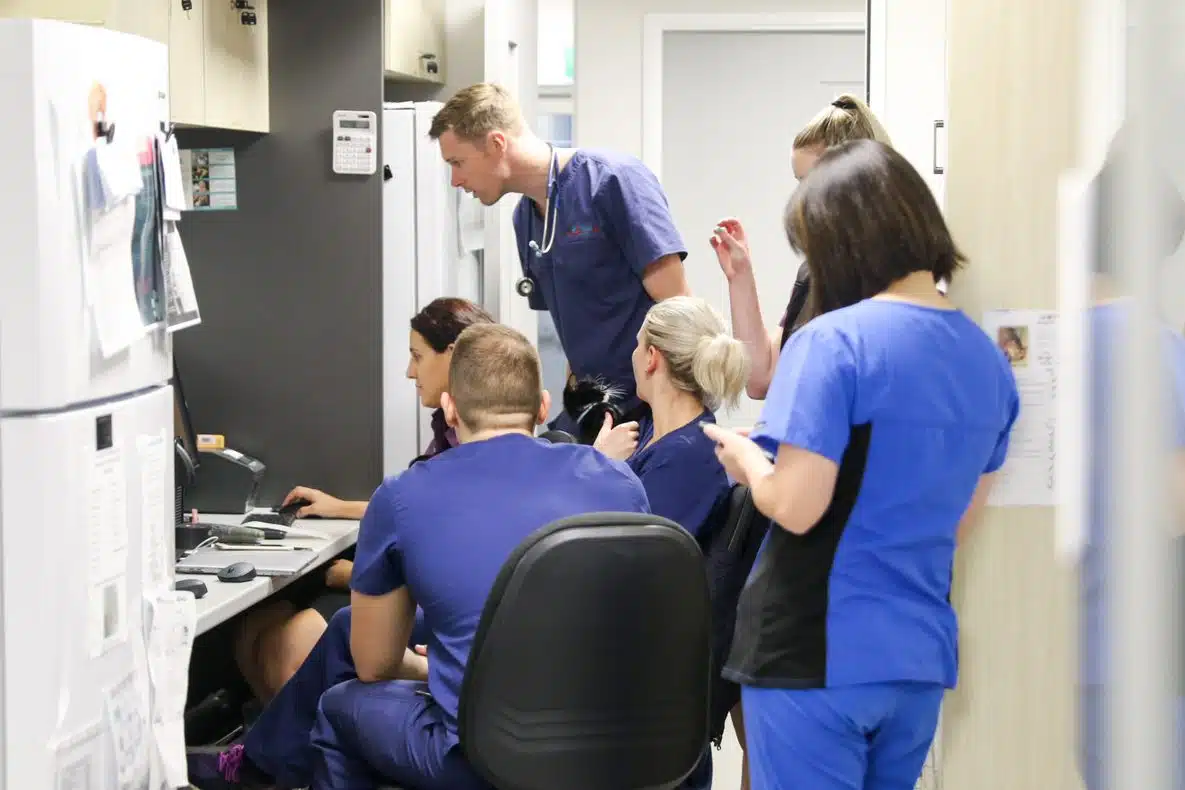
In addition, seeking support from colleagues and peers can also provide a space for sharing and learning from one another. This can be an opportunity to exchange ideas, learn new techniques, and get feedback on challenging cases. By working together, veterinary professionals can improve their clinical skills and confidence, which can contribute to overall job satisfaction.
Furthermore, seeking support from colleagues and peers can also help to reduce the stigma surrounding mental health issues in the veterinary profession. It’s an important topic that shouldn’t remain behind closed doors. By discussing mental health openly and honestly, we can help to create a culture of acceptance and support, which can encourage others to reach out seek help when they need it most.
Vet Mental Health Tip #3 – Practice Stress Management Techniques
Stress management techniques are essential for maintaining a lasting career in the veterinary profession. While helping patients and saving lives is incredibly satisfying and fulfilling, there’s no denying that it can be a stressful profession at times. So managing a healthy level of stress, or even harnessing stress to your advantage, can be a valuable technique. That’s why we’d like to specifically highlight some common stress management techniques that you can use at any time in the clinic:
- Deep Breathing
- Mindfulness Meditation
- Exercise
- Journaling
- Talking to a Professional
Deep Breathing
Deep breathing is a simple and one of the most approachable stress management technique that can be done anytime and anywhere. It involves taking slow, deep breaths in through the nose and out through the mouth, which can quickly and effectively slow down your heart rate and reduce feelings of anxiety. Performing deep breathing also activates your body’s parasympathetic nervous system to promote feelings of calm.
Mindfulness Meditation
Mindfulness meditation involves focusing on the present moment and letting go of distracting thoughts. It can be helpful for reducing stress and improving overall wellbeing. This can be done through guided meditation apps, videos or even classes. Once you get a hang of mindfulness, with practice you’ll be able to be mindful even in busy and distracting environments.
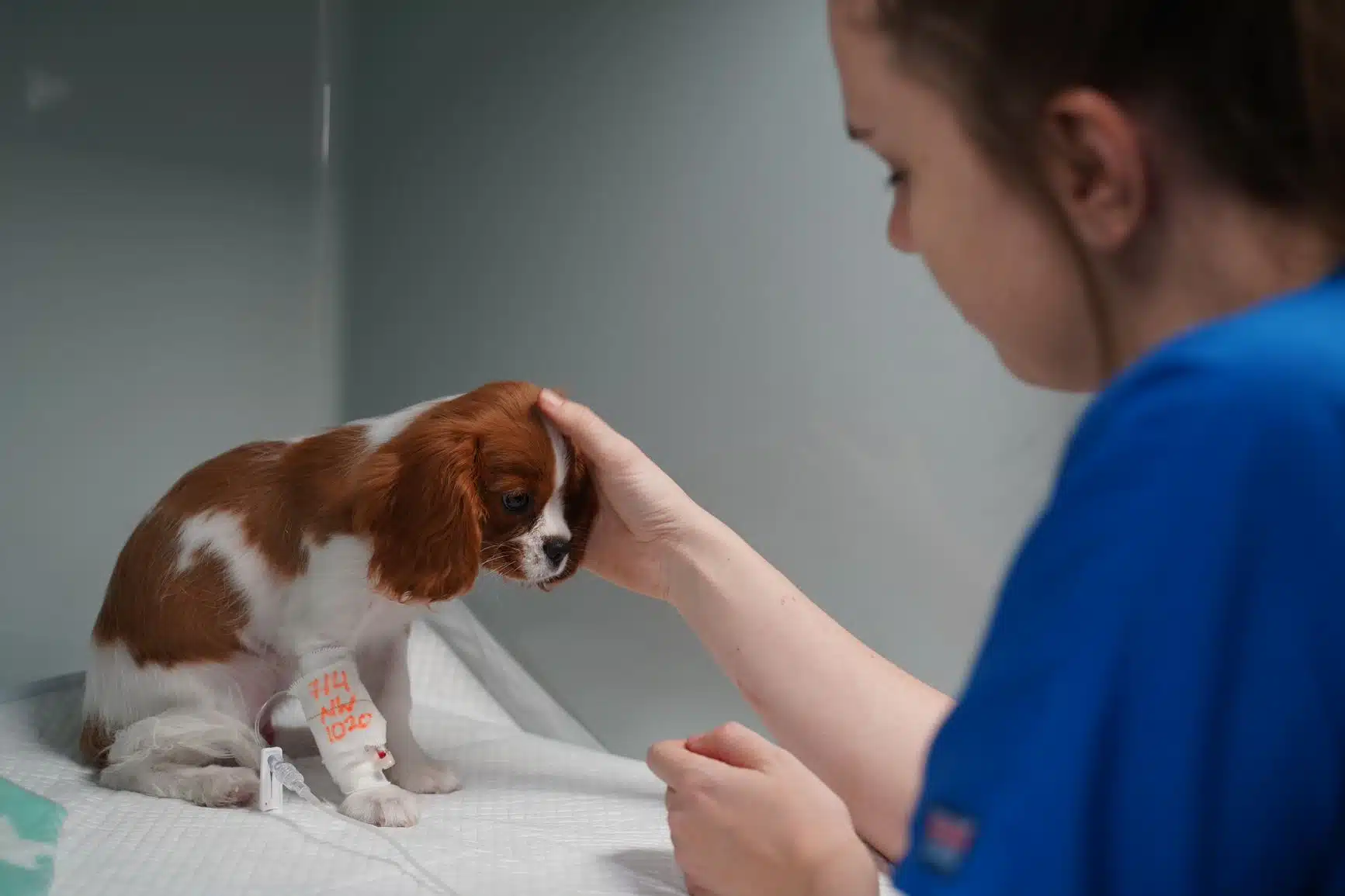
Exercise
As we mentioned earlier in the article, exercise is a great way to relieve stress and improve mental health. Veterinary professionals can engage in physical activities such as running, yoga, or cycling to reduce stress and improve overall wellbeing. Try and make a habit of it, or even consider introducing a workplace fitness program into your clinic to benefit all of your colleagues.
Journaling
We’re not just talking about taking notes or typing up your patient history. Nope, journaling is all about getting your thoughts out and being able to actively vocalise them. By writing down specific thoughts and feelings, this can be a simple way help to process emotions that might weigh you down. Veterinary professionals can benefit from journaling about their experiences at work, which can provide a sense of release and help to reduce stress levels.
Talking to a Professional
At times, stress can become overwhelming and difficult to manage alone. But you don’t have to bear the brunt of it by yourself. In these cases, talking to an accredited mental health professional can be helpful. Many mental health professionals work closely in the veterinary industry, with many clinics having their very own mental health first aid officers. By reaching out to a professional, you’ll be provided with support, guidance, and tools for improving your wellbeing.
Vet Mental Health Tip #4 – Setting Boundaries and Managing Workload
Setting boundaries and managing workload are critical to having a healthy relationship with your work in veterinary profession. Veterinary professionals often have long working hours, a high volume of patients to see, and demanding clients to deal with, all while needing to maintain a high standard of medicine and patient care. Here are some tips for setting boundaries and managing workload:
- Priotise Tasks
- Set Realistic Goals
- Take Breaks
- Learn to say “No”
- Have a Support System
- Practice Self-Care
Prioritise Tasks
Being able to prioritise tasks and patients based on urgency and importance can be incredibly helpful for everyone working in veterinary clinic. This is especially relevant for veterinary professionals working in emergency and critical care, where we use triage to determine the most urgent patients and next steps. Prioritising can help to prevent feeling overwhelmed and ensure that the most critical patients are seen to first.
Set Realistic Goals
Setting realistic goals is crucial for managing workload and preventing burnout. Realitcally, it’s impossible to treat every single patient and give 100% of yourself to all cases. Doing so may actually be quite draining and damaging for your own wellbeing. Instead, look at setting achievable goals for the day or week without overcommitting yourself. Know your limits and when to step back from an overzealous goal. It can also be helpful to delegate tasks to other team members when possible, especially when you find you’re becoming overwhelmed.
Take Breaks
We’ve already mentioned the importance of taking regular breaks, which can help to prevent burnout and improve focus. Veterinary professionals should take breaks throughout the day to rest, recharge, and refocus. Short walks, stretching exercises, or even taking some deep breaths for a few minutes between consults and patients can be highly beneficial.

Learn to Say “No”
It is important to learn to say no to additional responsibilities or tasks that are beyond your own capacity. This can be challenging, but setting boundaries and being honest about your workload can significantly benefit your vet mental health. And as we’ve already mentioned, know when to delegate and lean on your team, as they’ll be able to help share the work.
Have a Support System
It can be helpful to have a support system in place, including colleagues, friends, and family. Think about people both inside and outside of the vet clinic who you can really rely upon. Veterinary professionals should share their workload and concerns with these trusted connections and building a reliable support system to prevent feeling isolated.
Practice Self-Care
We’ve already discussed the importance of practicing self-care for wellness, but this is also crucial for managing workload. Without looking after yourself, it can be difficult to look after others, including your patients. So put yourself first – engage in activities that you enjoy, take time for passions and the things that bring you joy – and prioritise self-care to better manage your own workload and achieve a healthy work-life balance.
Vet Mental Health Tip #5 – Seeking Professional Help When Needed
Seeking professional help for mental health is a necessary component in maintaining wellbeing in the veterinary profession. Despite the stigma surrounding mental health issues, it’s important to remember that seeking professional help is a sign of strength and self-awareness. Here are some reasons why veterinary professionals may consider seeking professional help:
- Showing Symptoms of Burnout
- Anxiety and Depression
- Trauma
- Poor Work-Life Balance
Symptoms of Burnout
Veterinary professionals may experience burnout due to long shifts, strenuous workload, and the emotional demands we regularly encounter. Some symptoms of burnout can include exhaustion, lack of motivation, and feelings of cynicism or detachment from work. So if you notice any of these symptoms, seeking professional help in this situation is vital and can provide support and resources to manage these symptoms and avoid burnout entirely.
Anxiety and Depression
Anxiety and depression are also seen amongst some veterinary professionals, especially those faced with highly emotional work such as euthanasias, counselling of clients, or regularly seeing animals in pain and distress. These work conditions can affect mental health and wellbeing, and seeking professional help can provide resources and options to reduce the risk of developing anxiety and depression due to the workplace.
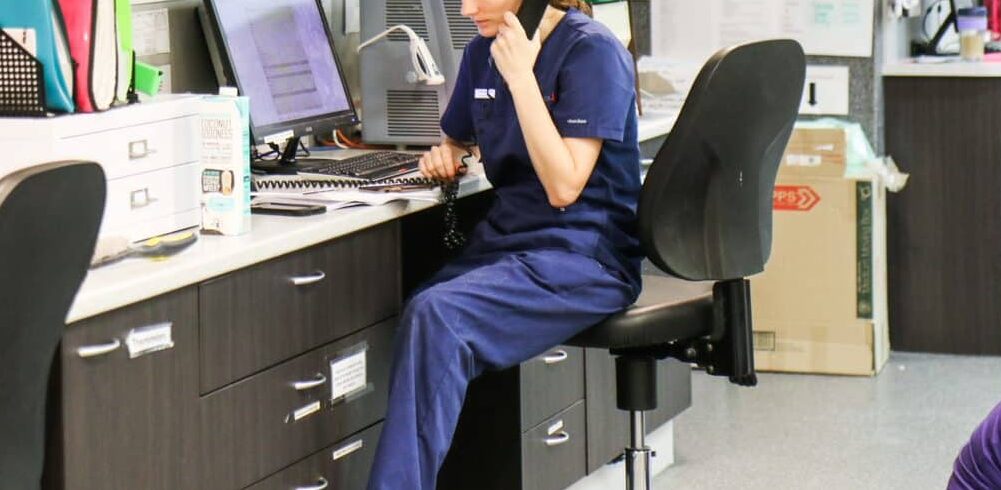
Trauma
The veterinary industry may involve situations that some could consider traumatic, depending on an individual’s prior exposure. This can be quite confronting for those with lesser experience, especially situations related to grief, dealing with difficult clients, or an unexpected loss of a patient. Trauma can have long-lasting effects on mental health, potentially leading to PTSD in severe circumstances. Seeking professional help can help to process and manage these experiences.
Work-Life Balance
Veterinary professionals may struggle to achieve a work-life balance, especially when faced with an excellent workload. If left unbalanced, this can lead to feelings of stress, frustration, and anxiety. Seeking professional help can provide tools and strategies for managing time and responsibilities to achieve a healthier work-life balance.
Professional help is crucial for maintaining mental and physical health in the veterinary profession. Veterinary professionals should not be afraid to seek professional help when needed and should view it as a proactive step towards improving their wellbeing. Are you in need of help or have a colleague that needs help? Please contact any of the following services below:
- Lifeline – 24/7 Crisis Support Hotline: 13 11 14
- Beyond Blue – 24/7 Beyond Blue Support Service: 1300 22 46 36
- Black Dog Institute – Online resources for mental health and wellbeing
- Headspace – Online and in-person mental health support
- Your employer’s Employee Assistance Program (EAP)
Discussion amongst the veterinary community should continue to raise awareness about the importance of mental health and promote a culture of openness and support. We provide essential care to animals and their human companions, and by prioritising our mental health, we can continue to provide excellent care and make a positive impact to animal welfare and to our communities. To find out more, be sure to use our library of wellbeing resources to continue to promote a healthy discussion around the important topic of vet mental health.

